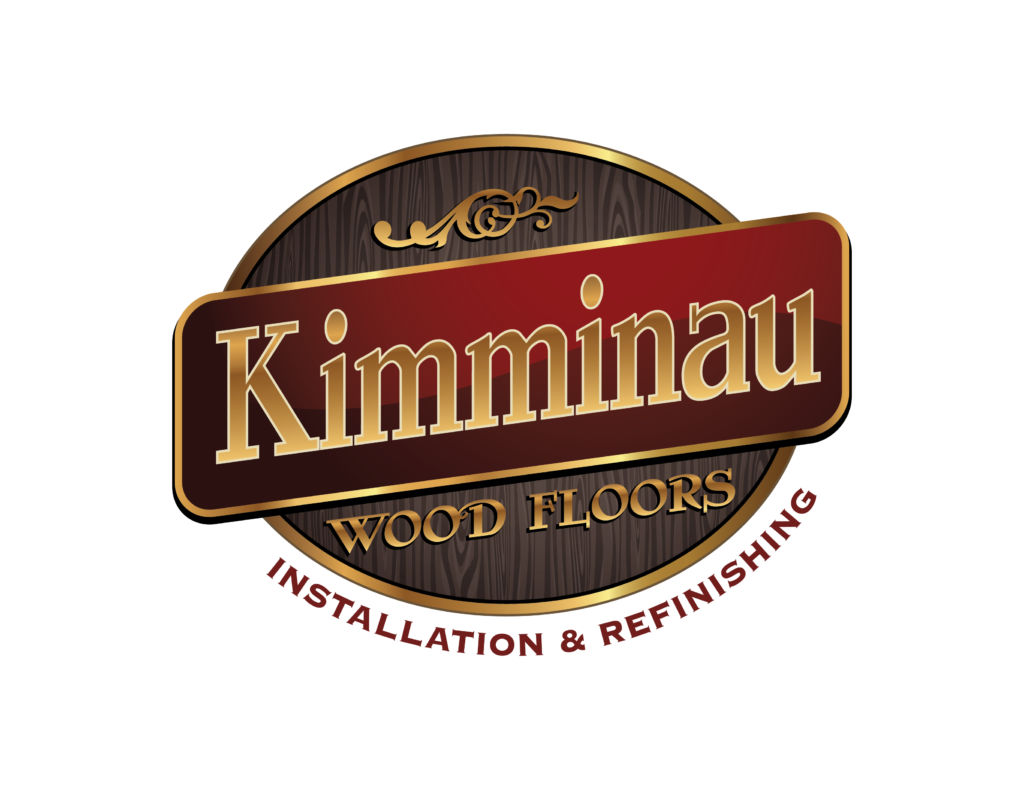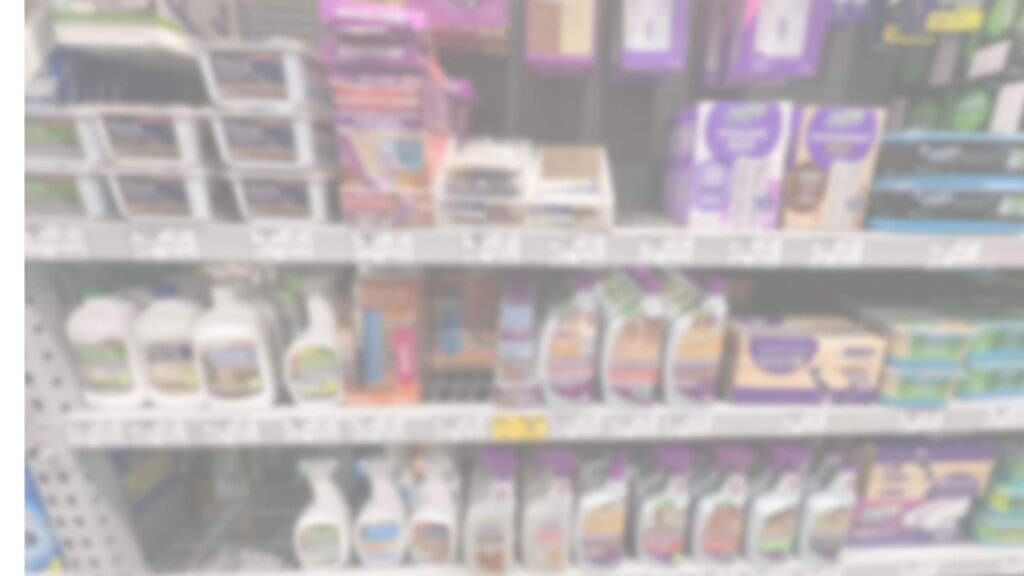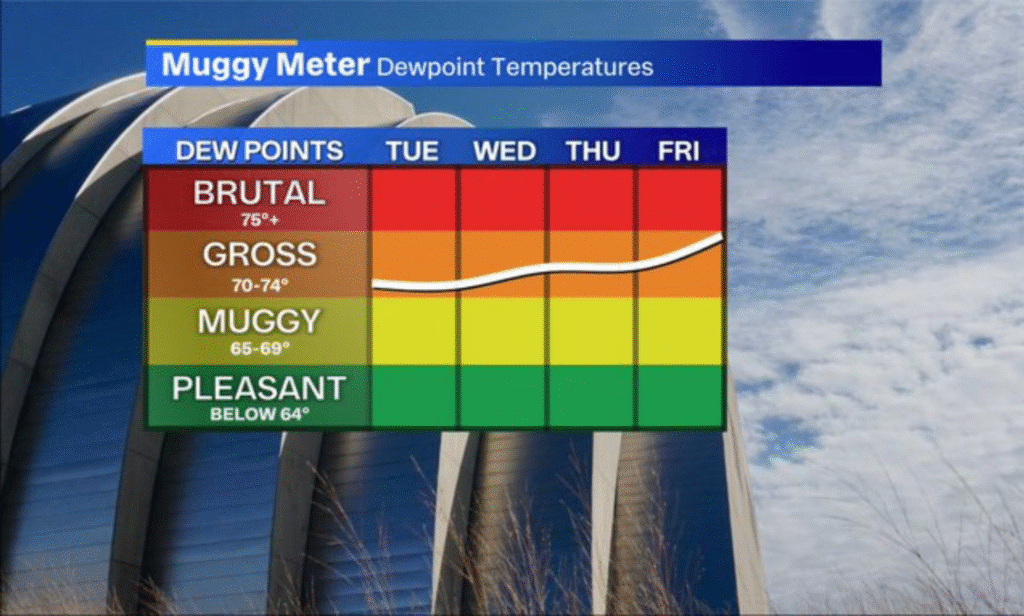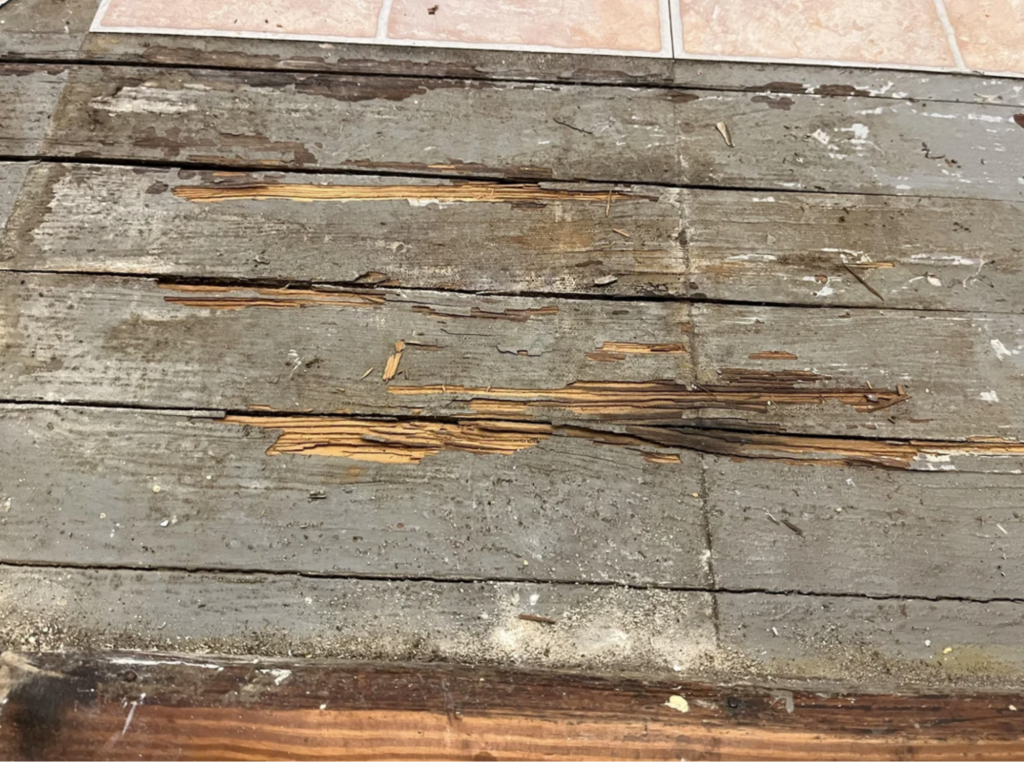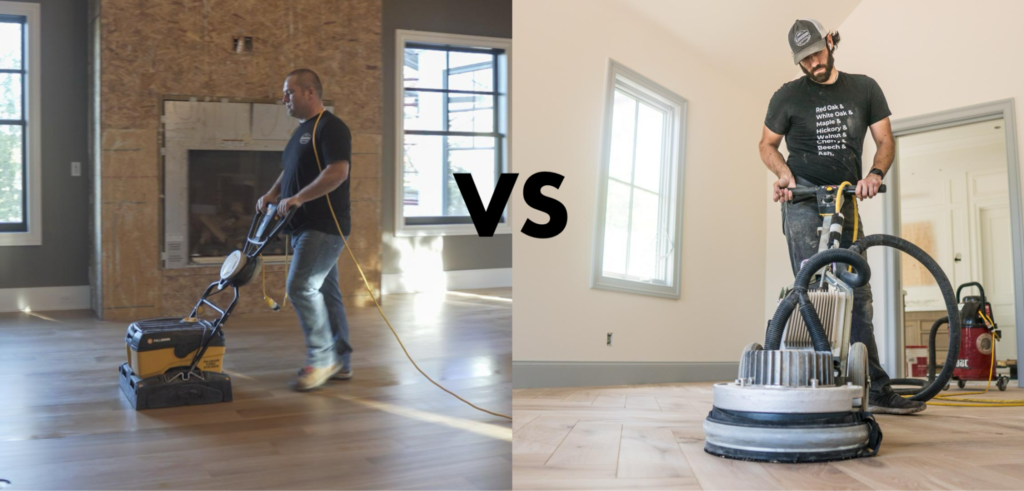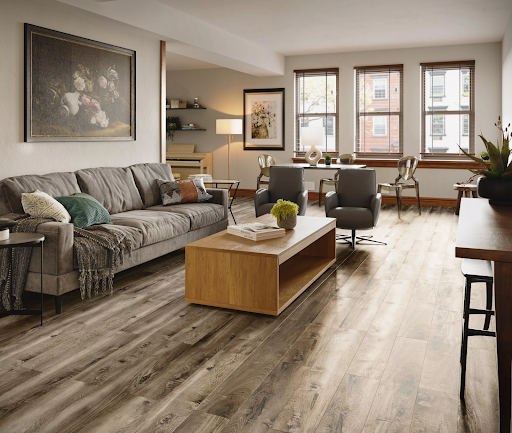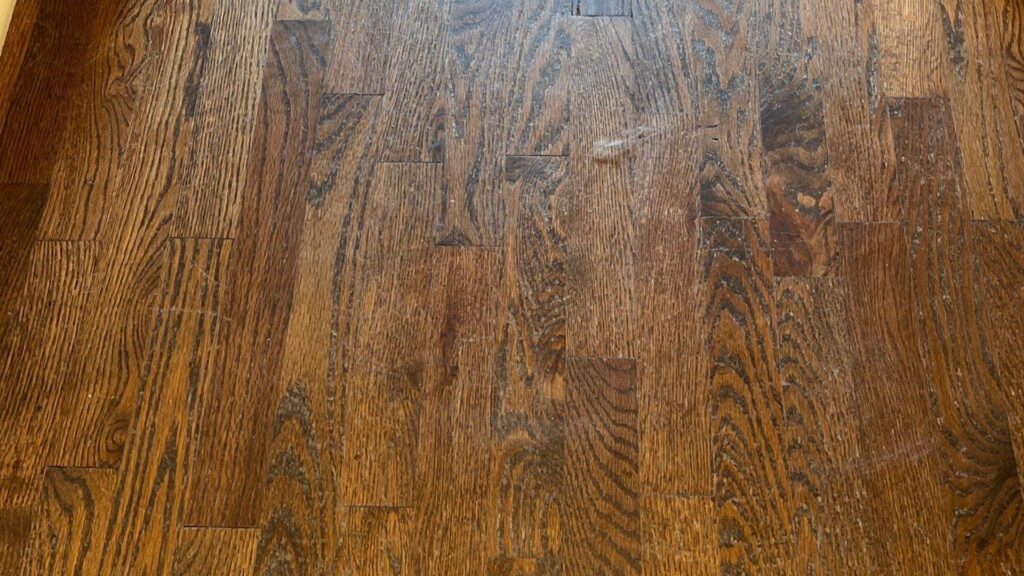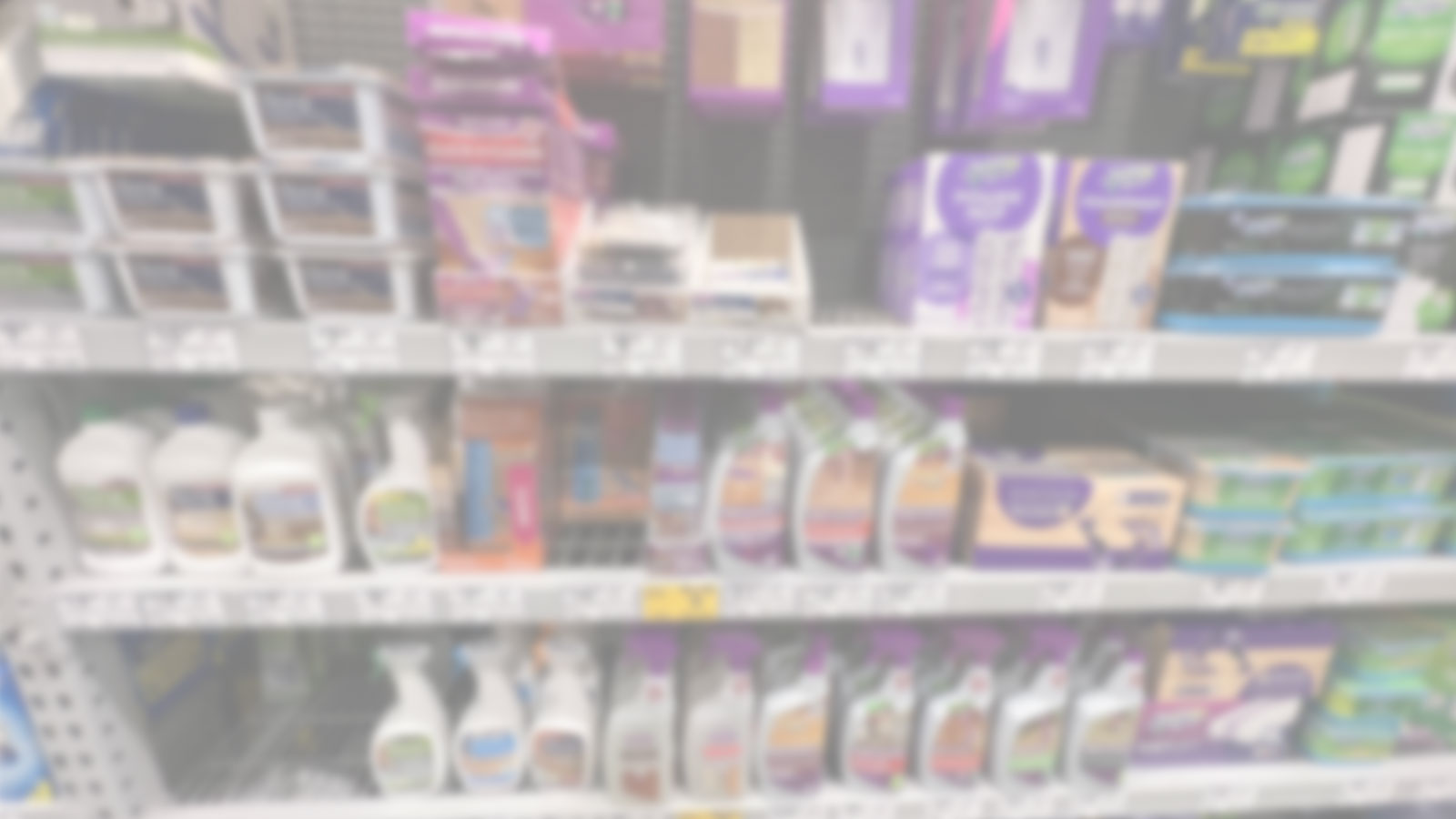
Hardwood floors are prized for their timeless elegance and durability, but to maintain their beauty, you must clean them properly. Unfortunately, not all cleaning products are suitable for hardwood floors, and using the wrong ones can lead to damage over time. In this blog post, we’ll explore the types of hardwood floor cleaning products you should avoid to keep your floors looking their best.
Common Mistakes to Avoid When Cleaning Hardwood Floors
When it comes to cleaning hardwood floors, there are several common mistakes that can compromise their beauty and longevity. Here are some pitfalls to watch out for:
- Using Too Much Water: Excess water is a hardwood floor’s worst enemy. It can seep into the wood, causing warping, buckling, and other damage. Always use a cleaning solution specifically designed for hardwood floors and follow the manufacturer’s instructions. A damp mop, not a soaking wet one, is your best bet.
- Using the Wrong Cleaning Products: Harsh chemicals, abrasive cleaners, and wax-based products can damage the finish or strip the wood of its natural oils. Instead, opt for a pH-neutral cleaner specifically designed for hardwood floors. Products like Bona Hardwood Floor Cleaner are formulated to be gentle yet effective.
- Not Testing a Cleaning Product First: Before using a new cleaning product, test it on a small, inconspicuous area of the floor. This ensures it won’t damage the finish or wood, saving you from potential headaches down the line.
- Not Cleaning Spills Immediately: Spills can cause significant damage if left to sit. Clean up spills immediately with a clean, dry cloth or paper towel to prevent staining and warping.
- Using a Steam Cleaner: Steam cleaners can force moisture deep into the wood, leading to warping and buckling. If you must use a steam cleaner, make sure to follow the manufacturer’s instructions and test it on a small area first. However, it’s generally best to avoid steam cleaners altogether for hardwood floors.
Excessive Water and Steam Cleaners on Hardwood Floors
One of the most common mistakes when cleaning hardwood floors is using too much water or steam cleaners. Hardwood and excess moisture don’t mix well. Water can seep into the wood, causing it to warp, swell, or cup. Steam cleaners, although effective for some surfaces, can force moisture deep into the wood’s pores, leading to potential damage and discoloration. Steam cleaners have also been known to melt the finish and damage the coating on your floor. Stick to a damp mop or cloth, not a soaking wet one, to clean your hardwood floors.
Vinegar and Ammonia-Based Cleaners on Hardwood Floors
While vinegar and ammonia are often used for general cleaning, they are acidic and can damage the finish of your hardwood floors. Over time, these substances can strip away the protective coating, leaving your floors susceptible to scratches, stains, and dullness. It’s best to avoid these ingredients when choosing a cleaning product. Instead, opt for a wood cleaner that is specifically formulated to be gentle on hardwood floors.
Tested Hardwood Floor Cleaners vs. Harsh Chemical Cleaners
Avoid using harsh chemical cleaners, especially those designed for other types of flooring. These products can contain abrasive chemicals that can scratch or damage the finish on your hardwood floors. Select cleaning solutions specifically formulated for hardwood to ensure safety and longevity.
Oil-Soaps
Oil-based soaps might seem like a good choice, but they can leave behind a sticky residue that attracts dirt and dust. This residue can be challenging to remove and interfere with the adhesion of future finish or maintenance coatings. Choose a gentle hardwood floor cleaner instead.
Wax-Based Cleaners
Wax-based cleaners can create a buildup on your hardwood floors, leaving them looking cloudy and dull. They may also make the surface slippery, posing a safety hazard. These products require extensive and challenging removal processes. Stick to cleaner options that won’t leave residue and interfere with the adhesion of future finish or maintenance coatings.
Abrasive Scrubbers and Brushes
Scrubbers or brushes with stiff bristles or abrasive pads can scratch the surface of your hardwood floors. Opt for soft microfiber cloths, mop heads, or soft-bristle brooms to clean without causing damage.
Furniture Polish
Furniture polish contains silicones that can create a slippery surface on hardwood floors. This can make your floors hazardous and result in residue buildup over time. Avoid using furniture polish as a floor cleaner. Many effective hardwood floor cleaners come in a spray bottle, making them easy to apply without leaving a slippery residue.
Saturating Floor Polish
While floor polishes can add shine and protection, overusing them can create an uneven, sticky surface. Using this type of finish will prevent future maintenance coats from properly adhering to your floor. Using the right floor cleaner can help maintain the shine and protection of your hardwood floors without creating an uneven surface.
Dirty Cleaning Tools
Using dirty or gritty mop heads or cloths can transfer dirt and debris onto your hardwood floors, potentially causing scratches or surface damage. Keep your cleaning tools clean and free from debris.
The Importance of pH Levels in Hardwood Floor Cleaners
Understanding pH levels is crucial for maintaining the health and beauty of your hardwood floors. A pH-neutral cleaner is essential for cleaning hardwood floors without causing damage.
- What is pH?: pH measures the acidity or alkalinity of a substance. A pH level of 7 is neutral, while levels below 7 are acidic and above 7 are alkaline.
- Why is pH Important for Hardwood Floors?: Hardwood floors are sensitive to extreme pH levels. Cleaners that are too acidic or too alkaline can damage the finish or strip the wood of its natural oils. A pH-neutral cleaner ensures that the floor is cleaned effectively without causing harm.
- What Happens if the pH Level is Too High or Too Low?: If the pH level is too high (alkaline), it can damage the finish and strip the wood of its natural oils, leading to dryness and brittleness. If the pH level is too low (acidic), it can etch the finish and damage the wood, making it more susceptible to wear and tear.
Benefits of Using a pH-Neutral Hardwood Floor Cleaner
Using a pH-neutral hardwood floor cleaner offers several significant benefits:
- Maintains the Finish: A pH-neutral cleaner won’t damage the finish or strip the wood of its natural oils. This ensures that your hardwood floor remains protected and looking its best.
- Preserves the Wood: A pH-neutral cleaner won’t dry out the wood or cause it to become brittle. This helps maintain the floor’s health and strength over time.
- Safe for All Hardwood Floors: Whether you have oak, maple, cherry, or another type of hardwood, a pH-neutral cleaner is safe to use. It’s a versatile choice that works well on all sealed hardwood floors.
- Environmentally Friendly: Many pH-neutral cleaners are biodegradable and environmentally friendly. Choosing these products helps you maintain a sustainable cleaning routine while keeping your floors in top condition.
In conclusion, the key to maintaining the longevity and beauty of your hardwood floors is using the right cleaning products. Avoiding the aforementioned products and opting for pH-neutral hardwood floor cleaners designed for your specific flooring type will help ensure your hardwood floors stay stunning for years to come. If your floors are lacking shine and you want to clean up surface scratches, check out our clean and coat process for lasting results.
Our Commitment To Clients
As flooring professionals, we strive to stay educated on the various flooring systems available on the market. We stay at the forefront of new advancements in the flooring industry through continued education and training courses provided by the National Wood Flooring Association. Our knowledge enables us to educate our clients on the pros and cons of various hardwood solutions. Our job is to listen to our clients and provide solutions that best fit their lifestyles. We provide easy and stress-free installations by staying informed, prioritizing clients’ needs, and setting proper expectations.
